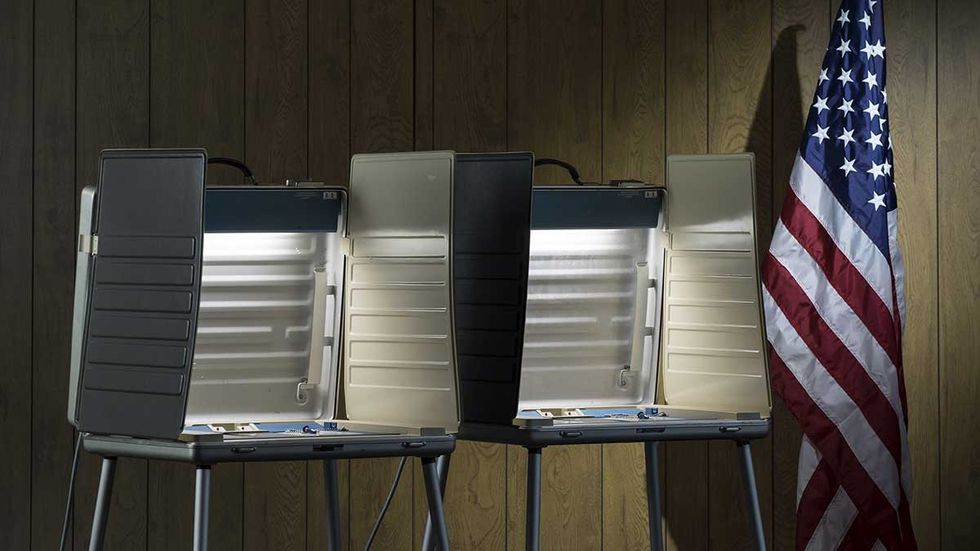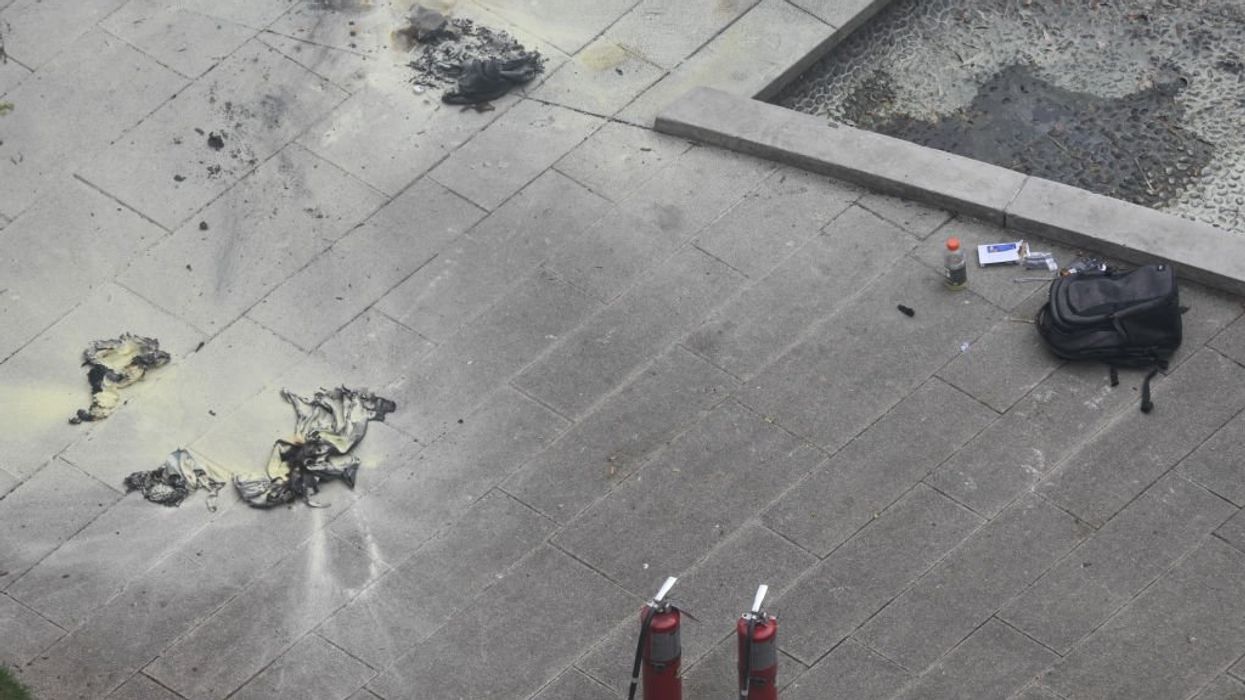
© 2024 Blaze Media LLC. All rights reserved.
Casting your ballot via an electronic machine that lacks a paper trail (commonly referred to as “touchscreen voting”) is a violation of your civil right to have your voting intent counted in an election. There are 15 states that, at least in part, allow voting on touchscreen devices without a paper trail that confirms the voter’s intention. That makes a true recount virtually impossible and raises serious questions about hacking and the possibility of improperly calibrated machines leading to a skewed result. Some state legislatures have taken measures to abolish touchscreen voting in favor of paper ballots. All states should. American’s faith in elections is at stake.
According to Ballotpedia, fifteen states employ direct recording (touchscreen) voting machines that do not have a paper trail:
- 10 states have some jurisdictions that use voting machines with no paper trail: Arkansas, Florida, Indiana, Kansas, Kentucky, Mississippi, Pennsylvania, Tennessee, Texas, and Virginia. The Florida secretary of state’s office told Conservative Review that only those asking to vote on ADA-compliant machines are allowed to vote on touchscreens. The rest of the state uses paper ballots.
- Five states have touchscreen-only voting equipment: Delaware, Georgia, Louisiana, New Jersey, and South Carolina
Conservative Review reached out to election officials in these 15 states to find out how those states conducted recounts and whether or not voters were entitled to request a paper ballot. Only a handful of those officials responded.
There are two main problems with touchscreen electronic voting with no paper trail: miscounted votes and a civil rights violation during recounts, where the intent of the voter cannot be determined.
There have been numerous reports this election cycle of touchscreen voting devices changing votes. That includes Illinois, where the vote switching was allegedly caught on video. Votes at the state level and in a U.S. House of Representative race were apparently switched to Democrat when the voter tried to select a Republican.
Meanwhile, in Chambers County, Texas, election officials last week suspended voting by machine until a software update could be deployed. The machines had been recording votes improperly.
Without a paper record of each vote, it is virtually impossible to conduct a meaningful recount in a close election. There is a long-standing test that the “intent of the voter” must be taken into account during a manual recount of votes. This was specifically referenced in the 2000 presidential election in Florida, when “hanging chads” became a household word. In some instances, even “dimpled chads” were counted. A sufficiently large depression in a punch card was seen as a vote, and the vote would be counted for that candidate.
I have been involved in multiple recounts at the municipal level in elections in Massachusetts. I was a campaign observer, and the voter intent standard was to be counted there as well. If, for instance, a person circled a candidate’s name, instead of filling in an oval, the vote would go to that candidate based on the voter’s intent.
It is your civil right that your vote be counted as you intended it to be counted. Without a paper record of your vote, that is not possible. For that reason alone, states that have electronic voting should, at a minimum, allow you to cast a vote by paper ballot if you request to do so. But not all states do.
Brad King, a spokesman for the Indiana secretary of state, told CR that if paper ballots are available in a jurisdiction that has a Direct Recording Electronic system (DRE),a voter may request a paper ballot. However, the jurisdiction is not required to have those paper ballots on hand, so election administrators “may not have the paper ballot stock available to make this request.” In many other states with voting machines, you must request a vote-by-mail ballot in order to vote by paper.
In many states with voting machines that do not produce a paper trail of each individual voter’s choice, the only evidence available for recounts is the paper tape that is printed with the aggregate vote totals at the end of the night. In Indiana, as Brad King told CR, “An electronic voting system is required by Indiana law to maintain an image of each individual ballot which is cast on the system, and to use a method of 'storage location scrambling' so that the image of the ballot cast by the first voter using the system is not the first image to appear on a printout of the images.”
Obviously Indiana's process is better than having no record at all, but the state has no way to record the voter's intent, i.e. where the voter placed his or her finger on the screen. If a machine error changed a vote that the voter did not catch, there is no way for the voter's intent to be known during a recount.
Some states, including Virginia, have taken measures to move away from electronic touchscreen voting. Peter Dena, the spokesman for the Virginia Department of General Services, told Conservative Review that the Virginia legislature has passed legislation banning the use of DRE machines starting in July 2020 — in time for the next presidential election. The bill was signed into law by the governor on March 23, 2016.
More states should follow Virginia’s lead and go back to paper ballots. Until then, there is ample reason to doubt the integrity of elections in the states that use touchscreen voting machines.
#mc_embed_signup{background:#fff; clear:left; font:14px}
/* Add your own MailChimp form style overrides in your site stylesheet or in this style block.
We recommend moving this block and the preceding CSS link to the HEAD of your HTML file. */
Want to leave a tip?
We answer to you. Help keep our content free of advertisers and big tech censorship by leaving a tip today.
Want to join the conversation?
Already a subscriber?
more stories
Sign up for the Blaze newsletter
By signing up, you agree to our Privacy Policy and Terms of Use, and agree to receive content that may sometimes include advertisements. You may opt out at any time.
© 2024 Blaze Media LLC. All rights reserved.
Get the stories that matter most delivered directly to your inbox.
By signing up, you agree to our Privacy Policy and Terms of Use, and agree to receive content that may sometimes include advertisements. You may opt out at any time.



